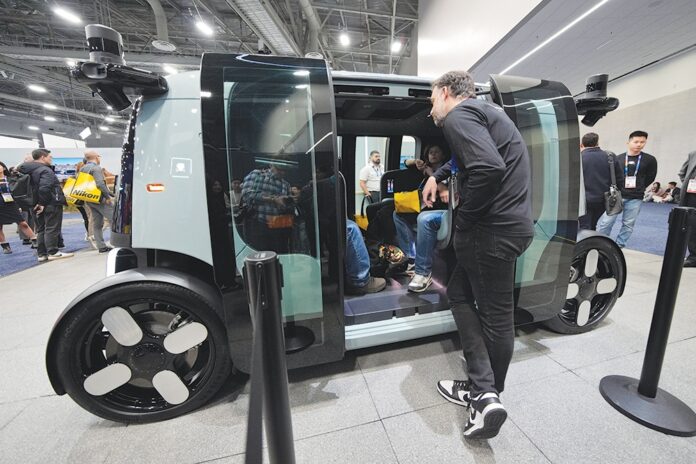The Future of Mobility in Las Vegas: Innovation at Risk
Las Vegas, often regarded as the heart of the global innovation, tourism, sports, and entertainment economy, is poised on the brink of a significant shift. With its annual hosting of hundreds of major trade shows and technology-focused corporate events, the city serves as a critical nexus where new ideas and products are unveiled, connections are formed, and exciting futures are imagined.
At the core of this connectivity is mobility, especially the burgeoning field of autonomous vehicles. However, recent legislative developments pose a considerable threat to this promising future. Senate Bill 395, if enacted, would require a licensed human driver in every autonomous commercial truck. This bill has the potential to disrupt Nevada’s progress as a leader in innovative transportation solutions.
The Innovation Landscape of Las Vegas
Las Vegas invests billions into establishing its global reputation as a forward-thinking metropolis. From initiatives like Black Fire Innovation at UNLV to the advanced technological infrastructure at Harry Reid International Airport, the city embraces innovation at every turn. Robots enhance hotel guest experiences, and autonomous taxis glide along the bustling Strip, showcasing how innovation and technology can revolutionize everyday experiences for both residents and visitors.
These advancements are not merely futuristic fantasies; they are a reflection of significant investment in job creation and economic growth. However, the potential implications of SB 395 could stall these progressions.
The Impact of SB 395
Senate Bill 395 is not just a regulatory matter; it is a reflection of concerns from within the trucking industry. Many truck drivers voice fears regarding their future as autonomous technologies advance. While their concerns are legitimate, focusing solely on emotional narratives could blind policymakers to a wider truth. Data suggests there is a widening gap between the number of licensed drivers and the demand expected in the coming years.
Requiring every autonomous truck to have a human driver introduces significant costs and inefficiencies, which may encourage companies to seek more welcoming environments. Currently, 24 states are paving the way for fully driverless vehicles that meet safety standards without such constraints. If Nevada were to maintain this restrictive legislation, it would likely deter autonomous vehicle companies, directing economic growth and infrastructure investment toward states that embrace innovation rather than resist it.
The Role of Major Events in Economic Dynamics
The Consumer Electronics Show (CES) exemplifies Las Vegas’s status as a tech hub. The 2025 show alone managed to attract over 142,000 attendees, generating a wave of social media coverage that showcased the city’s capabilities to a global audience. Beyond CES, other events such as APAA, AWS re:Invent, and NAB solidify Las Vegas’s identity as the premier location for technological innovation and collaboration. As companies increasingly brand themselves as "tech companies," the city is well-poised to enhance its reputation and economic landscape—provided it remains a hotbed for pioneering innovation.
Broader Implications of Autonomous Trucking
The benefits of autonomous trucking extend beyond just the realm of innovation; they stand to make a broader impact on American society. This technology promises to streamline supply chains, enhance global trade, and ultimately lower costs for consumers. Faster, more reliable delivery systems mean that the products people order can arrive at their doorsteps sooner and with greater efficiency, making daily life easier.
Legislative Leadership and the Path Forward
Fortunately, there is hope for a more progressive approach. Forward-thinking legislators in the Nevada Assembly are advocating for policies that embrace autonomous technology. By rejecting unnecessary restrictions like those posed by SB 395, they are working diligently to ensure that Nevada remains at the forefront of technological advancement.
Las Vegas has the potential to be a beacon of innovation, contributing not only to the state but also to a national narrative that prioritizes efficiency, sustainability, and forward planning. The battle against regressive legislation is essential—not just for the future of autonomous driving but for the economic vitality of the state and the nation at large.
Through collaboration and a commitment to innovative policies, Nevada can maintain its position as a global leader in technology and innovation. As discussions around autonomous vehicles evolve, all eyes will be on how the state navigates this critical juncture in its history.
